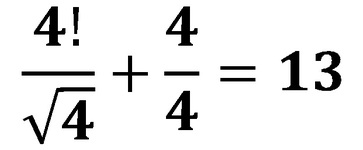
I like to solve problems. I also appreciate the instant gratification I get in solving Sudoku, KenKen, Minesweeper, or even FreeCell games as fast as I can. The faster the better.
During my career, my teams and I were often faced with problems that couldn't be solved in minutes, hours, or even days. We used systematic methods which required laying out multiple approaches to get to as many possible answers as possible. Collaboration usually helped. Persistence helped. But often we needed to walk away for a while and let our subconscious do the work; the answers arriving at odd times, like while taking a shower.
I must admit that I worry about our problem solving abilities. It seems like almost everything we do today is about faster and faster. If we can't get gratification in a matter of minutes, we move on to something else. Our attention spans are getting shorter. Computers and our intelligent portable devices make this easier and easier. I wonder if these addictions will lead us away from the sustained efforts needed to solve real world problems.
In thinking about this, I remembered the first sustained problem-solving effort I faced. I was 16. My high school Calculus teacher presented a challenge to the class. The first person to solve it would receive bonus points which could lead to the ever-sought-after A+. He had discovered the problem in that month's issue of Scientific American. It sounded simple enough:
Create all the number from 1 to 100 using exactly four 4s.
I dove right in, even before class was over and several numbers fell out quickly:
1 = (4+4)/(4+4)
2 = (4*4)/(4+4)
3 = (4+4+4)/4
etc...
But it didn't take long before I got stuck. I decided to keep moving on, skipping those that I couldn't get quickly. Once I realized I could use 4! (4*3*2*1 = 24), many more fell out. But I got really stuck on several. Days passed (I worked on this in my spare time) and one or two would fall out, then I'd be stuck again. Skip the next two paragraphs of this post if you don't want any more hints.
Ultimately, I understood that to solve the harder ones I needed to create tools - combinations of 4s (e.g. 4/.4 = 10) that I could use in other expressions ( e.g. (4/.4)*sqrt(4)+4 = 24 - note that I used 'sqrt' here because I couldn't easily add the square root symbol in this post).
The key was to think about other representations of 4, like factorial or square root, and then combine that with other representations to create numbers I could use to multiply, divide, add, or perform other operations with. It was a week or more before I had the tool building realization and then it took longer to build all the tools I needed. When I got really stuck it was usually because I needed to create a new tool.
Skip to here.
All told, it took me about 3 weeks. I was pretty proud of the fact that I was the first in the class to come up with a solution and my Calculus teacher admitted that he hadn't solved it yet. By the end of the term, as it turned out, no one else in all of his classes had solved it either. I'm not saying it to brag, I'm just laying down the challenge. Granted I've given you some hints that took me a while to get, but I'd be curious to see how long it takes you.
Since I haven't looked at this problem in decades (and I didn't keep the solution anywhere), I'm going to start on it myself.
If you get really stuck, contact me via the website and I'll give you more hints or some additional tools. Have fun!
















 RSS Feed
RSS Feed